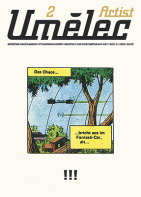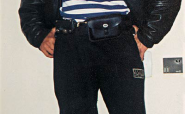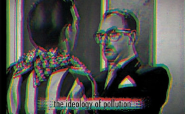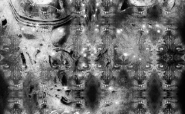| Časopis Umělec 1998/2 >> Jakou cenu má cena? | Přehled všech čísel | ||||||||||||
|
|||||||||||||
Jakou cenu má cena?Časopis Umělec 1998/201.02.1998 Simona Vladíková | cena | en cs |
|||||||||||||
|
The annual Jindřich Chalupecký Award has been given out since 1990 to young talented artist up to 35 years of age. This history should be time to summarize what this award represents for Czech art community, what prestige it has gained, what role it plays and how it helps the development of young Czech art.
Analyzing all circumstances, we soon find out that a lot of things are different from what ought to be expected. Instead of a smoothly operating institution, we come across a bundle of problems, unclear authorities, lack of information and procedural inconsitencies. All this results in an information vaccuum between the organizational background of the award and the art community which reflects its activities. Ultimately there is poor awarness of the Jindřich Chalupecký Award in general. The inception of the Award is connected with three personalities: Václav Havel, Theodor Pištěk and Jiří Kolář. At the same time the Jindřich Chalupecký Foundation was established and closely tied with the Foundation for a Civil Society (formerly known as The Charter 77 Foundation New York) which was from the beginning playing a major role of a source of contacts and funding. The Foundation for a Civil Society provides the Jindřich Chalupecký Foundation with information and contacts and has helped to organize scholarships for the winners at the Headlands Center for the Arts in Sausalito, California, and a week stay in New York. The great help from the Foundation for a Civil Society was no doubt necessary at the beginning but this proved to be a problem later on. Throughout the whole existence of the Award, the U.S. scholarships were considered a sure thing and organizers were not exposed to economic pressures. This is perhaps the reason why the Jindřich Chalupecký Foundation management did not show any efforts to secure support for other activities connected with the Award - an exhibition at Špálova Gallery, a catalogue, media presentations, etc. Efforts of the organizers were truly enthusiastic in the first years of the Award, there is nothing bad about that, but the Foundation failed to stabilize itself quickly. It wasn’t until 1994 that less ambiguous rules were established and a board of directors was appointed. The board was supposed to be in office starting last year but its members were never announced publicly. This, however, is not the only inaccassible information. It would not hurt at all if members of the jury for each annual Award were presented in the press, as well as the amount of money awarded. The board of directors and the jury of the annual awards consists of top theorists, art critics and active artists of older generations. The Jindřich Chalupecký Award thus has kept a high professional profile throughout its existence. It is all the more sad that the disproportion between professionalism and management gets ever deeper. In addition, throughout the history of the Award, the organizers have been trying to resolve the form of presentation for the winners. Natural tendencies to recapitulate the past eight years lead to a decision to organize a collective exhibition of all winners at Prague Castle. This effort to close one period and try to think of new possibilities and practical realization of procedural mechanisms was reflected in last year’s annual award. One was able to witness the will for a change in London’s Turner Prize style. The organizers decided to judge not only submitted documentation of the individual artists but also the projects that were actually realized. It is, however, evident that this change in the organization of the Jindřich Chalupecký Award and its evaluation procedures, which now include projects of the finalists, requires more thorough deliberation than just the simple decision of the jury. It is obvious that necessary changes of the Jindřich Chalupecký Award will touch the issues of organization and financing, which does not imply that the Award is not organizationally and financially secure. The Award’s operations are not grounded professionally. There is not a single manager who would be involved in its operations. If there was someone who would truly build general awareness of the Award and its professionalism, the Award would today enjoy much higher prestige. Searching for the reasons of the Jindřich Chalupecký Award failure, we cannot blame everything on human error. Of major influence is the fact that the entire non-profit sector is not sufficiently supported by legislature, which places obstacles for its development. Voices pointing out this disproportion have been ignored for a long time. In the meantime, however, the situation has already reached a state of a crisis which needs to be solved very soon. At the same time it is necessary to build general awareness out of necessity to support non-profit organization.
01.02.1998
Doporučené články
|
|||||||||||||





Komentáře
Článek zatím nikdo nekomentovalVložit nový komentář